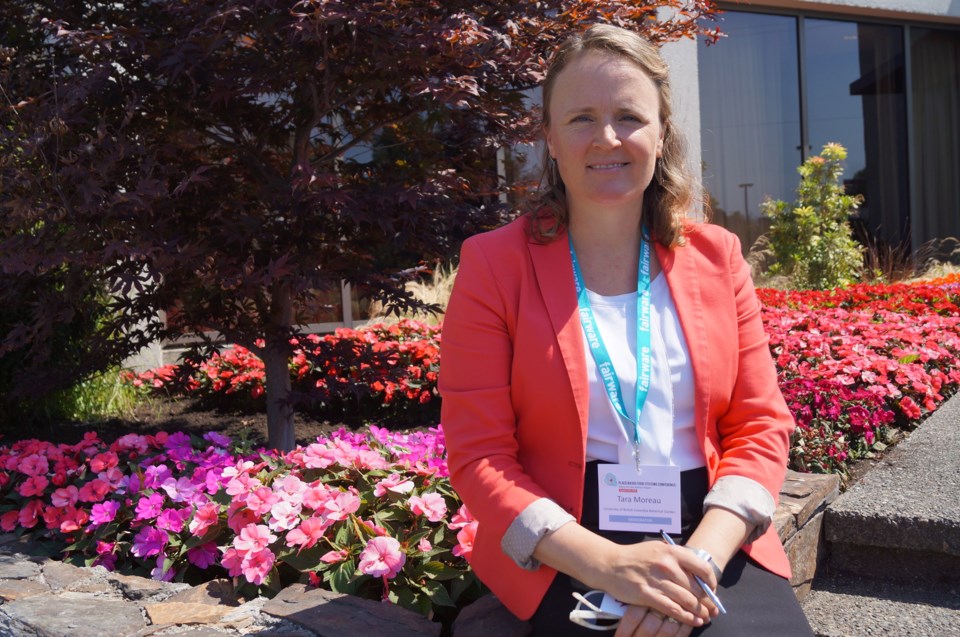Richmond residents need not feel they cannot contribute to local food movements by living amidst a growing concrete urban jungle, according to Dr. Tara Moreau, a plant scientist and lead researcher and educator at the UBC Botanical Garden and Centre for Plant Research.
“We can plant a garden in our backyard and we know it’s scaling up and it’s contributing to sustainable development goals,” Moreau told her audience Thursday at Kwantlen Polytechnic University’s international conference Place-Based Food Systems 2018: Making the Case, Making It Happen.
Meanwhile, “living in a townhouse, you can do small plantings to support biodiversity. You can also support it by supporting your public parks and joining a community garden, or getting involved in local government discussions or food policy councils.”
While Moreau has a number of degrees to back up her growing stack of peer-reviewed research, she understands that the academic literature must translate into real-life actions and solutions for people; which is why Moreau uses her position, as associate director for the UBC garden’s Sustainability and Community Programs, to educate the public on the likes of maintaining local watersheds and committing to zero-waste initiatives.
“It’s really important that we, especially here trying to create place-based food systems, provide people the idea that we can see there are solutions and they exist,” Moreau told the forum.
Moreau’s academic background is in studying, among other things, insect behaviour in monocrops versus their behaviour in biodiverse areas.
“Insect behaviour is fascinating but ultimately if I want to make a contribution, you have to understand human behaviour.”
Growing flowers go hand in hand with local and urban food movements, said Moreau, who wants to “raise the profile of botanical gardens as an ally of the local food movement.”
Richmond has several official and unofficial botanical gardens, including Garden City park, which features an arboretum devoted to trees from around the Pacific Rim, and Paulik Neighbourhood Park, which features a wide variety of flowers cared for by member of the Richmond Garden Club.
Moreau said it can be overwhelming for people to start eating a more sustainable diet.
“I know consumers are confused about the urban grocery store. They don’t know what to do,” she said.
But via numerous public education tours of the UBC garden and community forums, Moreau hopes to grow “critical, food-literate” people, by trying “to empower people to be critical thinkers about sustainable eating.”
Many Richmond students visit the garden each year, she said, to have them think about issues such as zero-waste initiatives.
“And [another] key element is sustainable food systems. Getting people into their garden and eating food fresh from the garden and linking that to the procurement.
“We use the botanical garden as a way of connecting people to the soil,” said Moreau.



